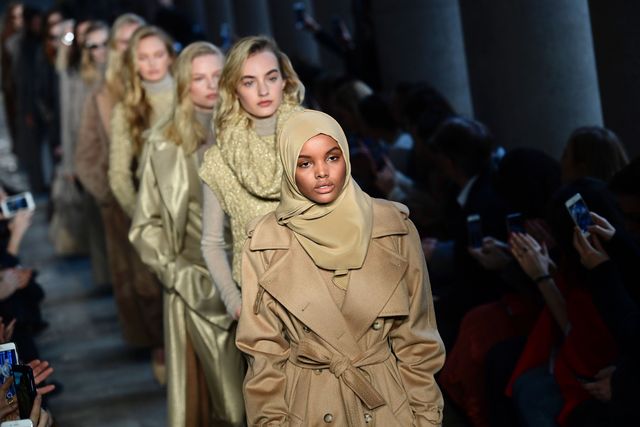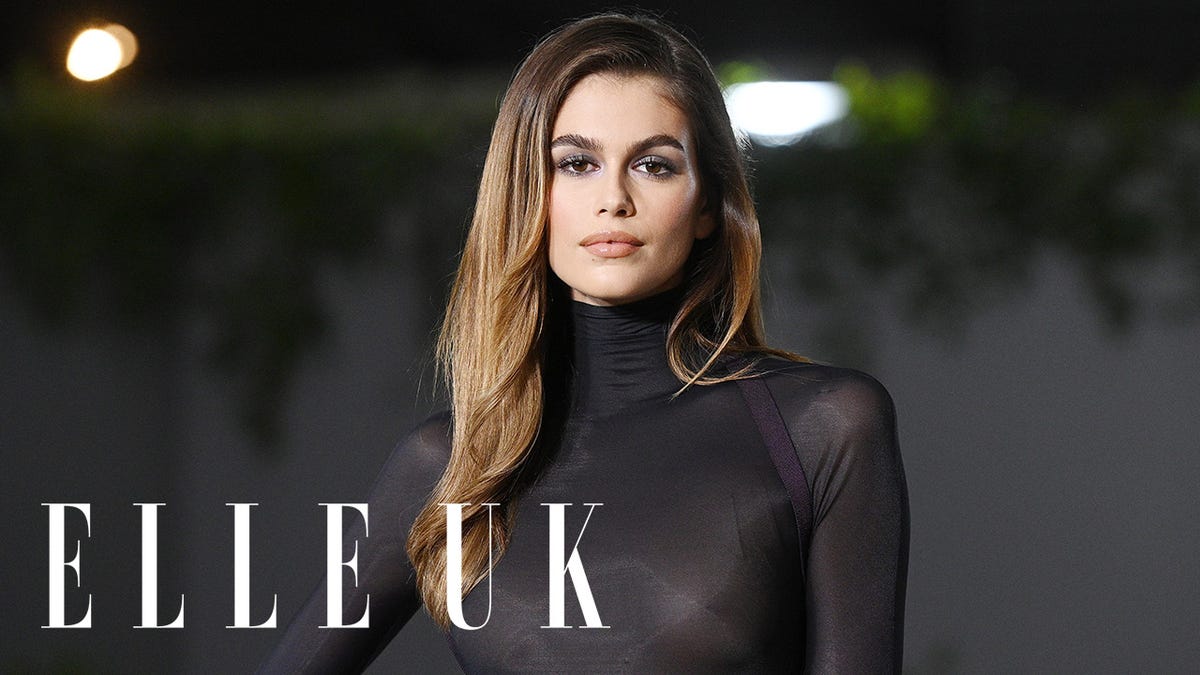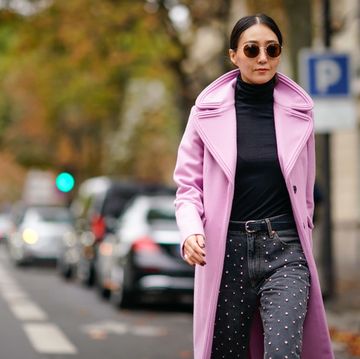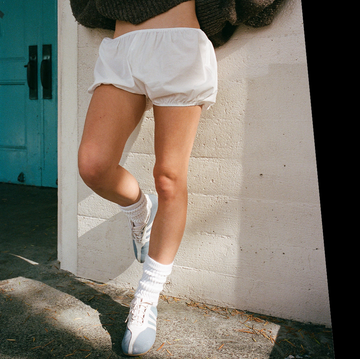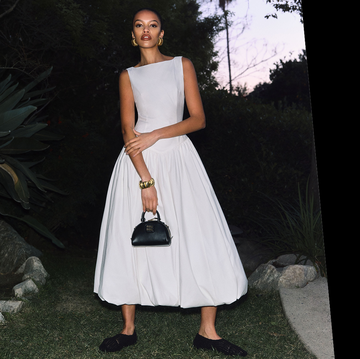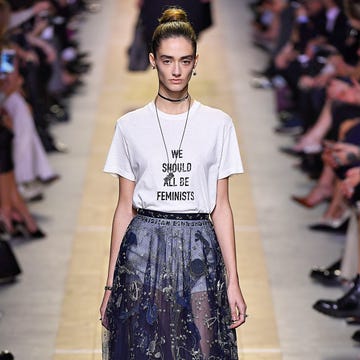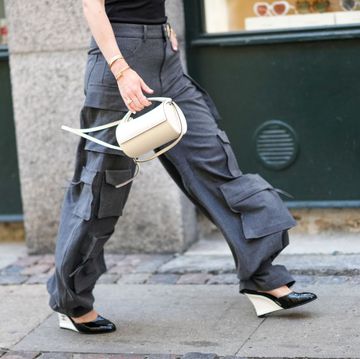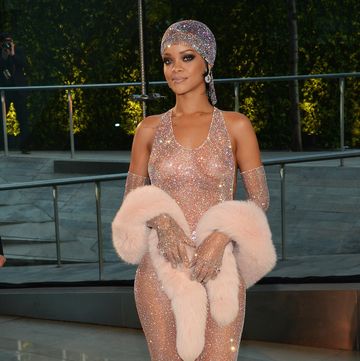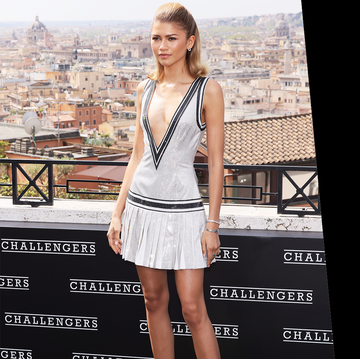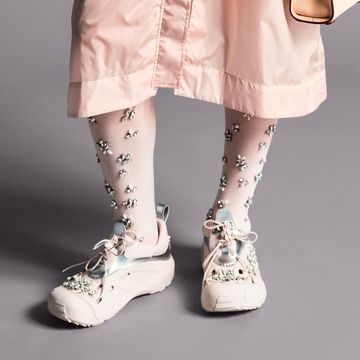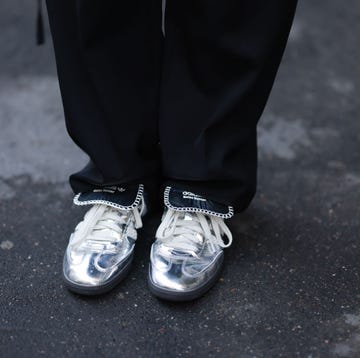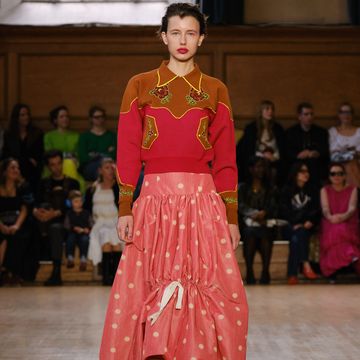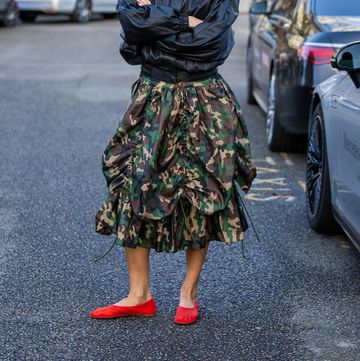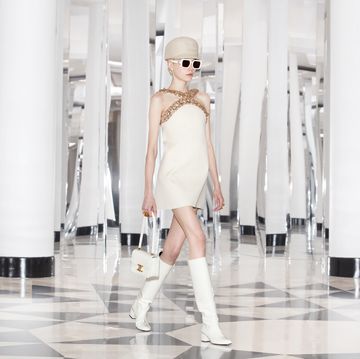Halima Aden is the fashion name you need to know this season.
She was born in a refugee camp and 19 years later broke the internet when she was photographed competing for the Miss Minnesota USA pageant in a hijab and burkini.
Since then she's walked for Kanye's Yeezy 5 Season – which launched at New York Fashion Week last month – and been signed by model agency, IMG.
However, earlier last week, Halima decided to step away from the catwalk and talk to i-D about the importance of representation and diversity in creative industries – a subject ELLE's 'Television Actor of the Year' Style Award winner, Riz Ahmed, recently spoke to parliament about too - the importance of representation over diversity.
The teenage model developed Ahmed's rhetoric about inclusion and explained how representation is one of the most important aspects in progressing towards a more liberal-thinking, diverse and understanding society.
The following quote is at the crux of what she had to say:
Growing up, I knew what it was like not having representation. When I say representation, I just mean people who resemble you or someone you could relate to, or someone who even dresses like you. Not having somebody that you can look up to, it did affect me in a way. If I can give that opportunity to a girl, where she can flip through a magazine and see someone dressed like her, or someone who looks like her or has a similar background, I think that's important. There's a lack of communication and people don't really understand about Somali culture. Me being out in the public and displaying my religion, my faith, being different to what the stereotype is — I think that has opened a lot of people's eyes.
It seems her rise to stardom could not have come at a more ironic time.
One of the countries included in Trump's 'Muslim ban' is Halima's home country, Somalia.
Halima's quotes come at a time when Islamophobia is on the rise in the US.
Positive portrayals of Muslims in various media forms is a simple and effective way of proliferating the idea of Muslims are regular citizens just like everybody else, over the harmful populist rhetoric of 'swathes' of immigrants and the evils of 'extreme Islamism'.
She went on to say: 'The world needs to see an American Muslim in popular media not doing something bad. For a really long time, when you saw a Muslim person on TV, it's usually because someone committed a crime.'
The response from people about Halima's career so far has been overwhelming, from both Muslim and non-Muslim women.
It seems the 'difference' Halima continues to portray is striking a chord with people inside and outside the fashion industry.
She opened up to the magazine about her role in the fashion and beauty sphere:
It took me a while to just be comfortable in my own skin and really just wear my difference proudly — not be ashamed of the way I dress. I feel like that's something a lot of women experience. Just learning to have good self-esteem and accepting yourself for who you are and not trying to blend in with the standard of beauty.
Halima is an inspiration, and hopefully she will act as a much-needed trailblazer in 2017, carving the path for hijab-wearing models and more, for years to come.
